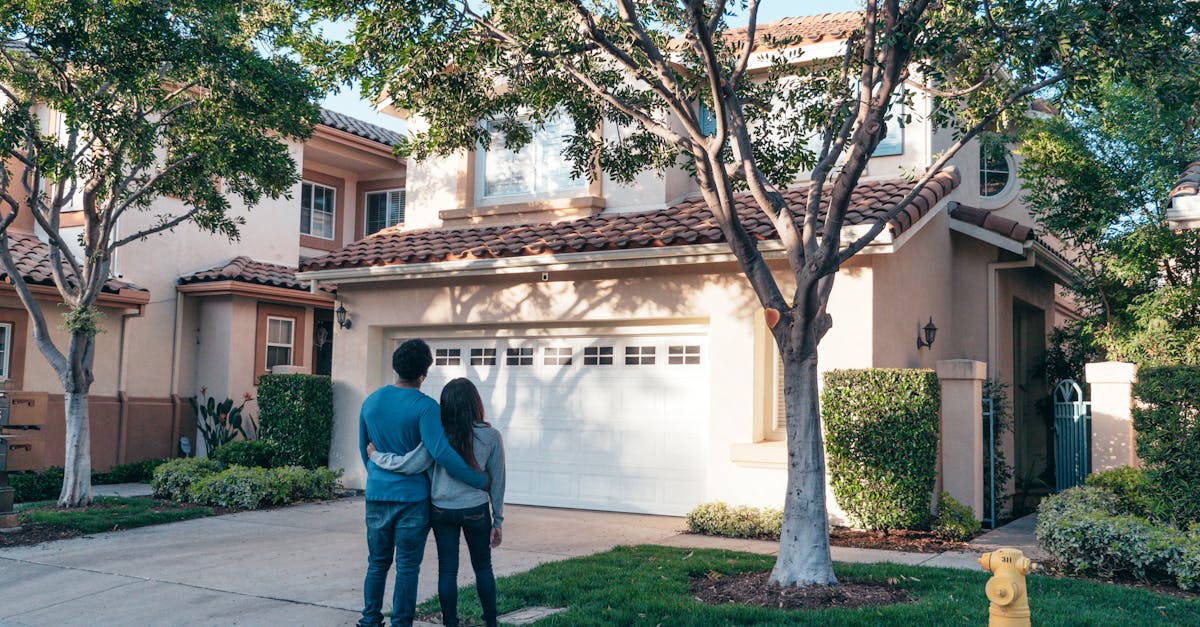
Table Of Contents
Risks of Not Having a Down Payment
Not having a down payment when seeking a hard money loan can lead to several financial risks. Without an initial investment, borrowers may struggle to establish credibility with hard money lenders. This lack of equity can result in higher interest rates and less favorable loan terms. The perception of risk is heightened for lenders when they see that a borrower has no financial stake in the property, which can limit options for securing the necessary funding.
In addition, borrowers who forgo a down payment may face greater financial strain if the investment does not yield expected returns. A property relied upon as collateral can place the borrower in a precarious position if market conditions change. This can lead to foreclosure or the risk of owing more than the property is worth. Hard money lenders are often focused on asset-based lending, and without a down payment, the potential for loss increases for both the borrower and lender alike.
Financial Implications of Minimal Investment
Investing with minimal down payment can significantly impact your financial landscape. Hard money lenders typically focus on the property's value rather than the borrower's creditworthiness. This approach allows for quicker access to funds but carries the risk of higher interest rates and fees. A lower initial investment might seem appealing, yet it can lead to a larger loan principal, resulting in increased long-term costs. Borrowers may also face potential challenges if property values decline, making it difficult to recover their investments.
In addition to higher costs, minimal investment can stretch an investor's cash flow. With hard money loans often requiring short repayment periods, borrowers may find themselves under pressure to generate revenue from the property quickly. This urgency could lead to hasty decisions, impacting the quality of investments and overall profitability. Without a substantial down payment, managing financial risks and ensuring a sound investment strategy becomes crucial for long-term success.
Alternatives to Down Payments
Hard money loans often appeal to investors looking for quick funding without the traditional constraints of banks. Many hard money lenders offer alternatives to substantial down payments, recognizing the urgency of real estate transactions. Investors can leverage the property's equity, allowing them to secure financing based on its current value rather than having to part with significant cash upfront. This flexibility can be a game changer, especially for those who may lack liquidity but have an eye for profitable investments.
While hard money lenders may work with minimal down payments, it's essential to consider the terms associated with such loans. Some lenders might impose higher interest rates or shorter repayment periods to compensate for the increased risk. Investors should thoroughly evaluate their financial situation and the potential returns on investment to ensure that proceeding without a down payment aligns with their overall strategy.
Exploring No-Down-Payment Hard Money Options
Some hard money lenders offer no-down-payment options, targeting borrowers who may lack the savings typically required for traditional financing. These loans can be appealing, especially for real estate investors looking to rapidly acquire properties without the burden of upfront costs. However, this convenience often comes with heightened risks and potentially higher interest rates, which is crucial for borrowers to consider before proceeding.
Taking advantage of no-down-payment hard money options can lead to quicker investment opportunities. However, borrowers must assess their financial stability and the overall project viability to ensure they can manage the repayment terms effectively. Understanding the lender's criteria and the specific conditions associated with such loans is essential for making informed decisions in a competitive market.
Hard Money Loan Terms and Conditions
Hard money loans typically come with specific terms and conditions that borrowers must understand before committing. These loans are generally short-term, often spanning a few months to a few years. Interest rates tend to be higher than traditional loans due to the increased risk taken by lenders. Hard money lenders focus primarily on the value of the property being used as collateral rather than the borrower's credit score, which can make the approval process faster and less stringent.
Repayment terms for hard money loans usually involve a lump sum payment at the end of the term, but some lenders may offer interest-only payments during the loan period. The loan-to-value ratio is also a crucial factor; hard money lenders often cap loans at a percentage of the property's appraised value. This means that a borrower may need to provide additional equity to secure favorable terms. Understanding these dynamics is essential for anyone considering a hard money loan, as they significantly impact the overall cost and feasibility of the financing option.
Typical Loan Structure and Repayment Terms
Hard money loans typically feature a straightforward structure, focusing on the value of the property rather than the borrower's creditworthiness. Hard money lenders often evaluate the property's potential for generating income or appreciation. This approach results in quicker approval timelines compared to traditional financing. Borrowers can expect loan amounts that cover a significant percentage of the property's value, which is typically assessed by the lender.
Repayment terms for hard money loans generally range from a few months to a couple of years. The interest rates tend to be higher than conventional loans, reflecting the increased risk taken on by hard money lenders. Monthly payments might include interest only during the loan period, providing some cash flow flexibility. At the end of the term, borrowers may be required to pay off the principal in a lump sum, making it crucial to have a clear exit strategy in place.
FAQS
Do hard money loans typically require a down payment?
Hard money loans may require a down payment, but many lenders offer options with minimal or no down payment depending on the borrower's financial profile and the property's value.
What are the risks of not having a down payment on a hard money loan?
The risks include higher interest rates, the potential for negative equity, and the increased likelihood of foreclosure if the borrower defaults on the loan.
Can I find hard money loans without a down payment?
Yes, there are hard money lenders that offer no-down-payment options, though these typically come with stricter eligibility requirements and potentially higher costs.
What are the financial implications of making a minimal investment in a hard money loan?
A minimal investment may lead to higher monthly payments and interest rates, as lenders may view a lower down payment as a riskier proposition, potentially impacting your overall financial stability.
What should I consider when exploring hard money loan terms and conditions?
It's important to review the loan structure, repayment terms, fees, and interest rates, as well as the lender’s reputation and the potential risks associated with the investment.





